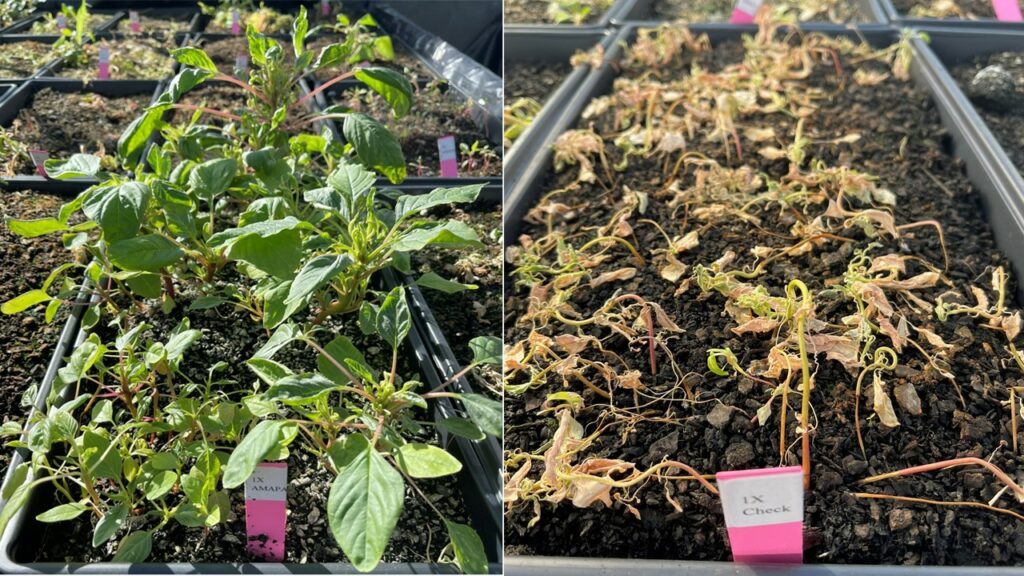
We have had the opportunity to visit with many retailers over the past several weeks on supply chain. What is clear is that most herbicides, with some notable exceptions, are being allocated due to supply concerns. Dicamba and Enlist One apparently are exceptions and are in good supply along with a number of the Group 15 herbicides like Zidua, Dual Magnum and Warrant. Glyphosate and clethodim are tight, but most feel everyone in the end should be able to get what they will need. The herbicide of most concern is glufosinate. Retailers have stated that they expect to get no more than 40% of the Liberty they sold last year. What generic glufosinate was out there in 2021 was used to fill shortages and is now exhausted in 2022.
The shortage of Liberty is a real concern particularly when one considers the results of the Palmer amaranth dicamba-resistance screening currently being conducted in our greenhouse. The first run from seed collected last fall from west Tennessee has shown that about 23% of the populations have some level of dicamba resistance. The level of dicamba resistance in these populations varies from a handful of survivors after a dicamba application to some showing a frightening level of dicamba resistance where essentially no control is observed (Picture 1 Left). Keep in mind we typically get much better control of Palmer amaranth in the greenhouse than what we see in the field. Liberty will be needed for these populations to try to clean up the many Palmer amaranth that will grow right through dicamba.
The bright spot to all of this is at least a number of the good residual herbicides for Palmer amaranth are available. Anthem Maxx, Dual Magnum, metribuzin, Warrant and Zidua are, generally speaking, in much better supply and most should be able to utilize them this year. These herbicides should be the backbone of our weed management programs. Overlaying those herbicides or premixes containing those herbicides can greatly reduce the need for Liberty to clean up Palmer amaranth dicamba escapes.

